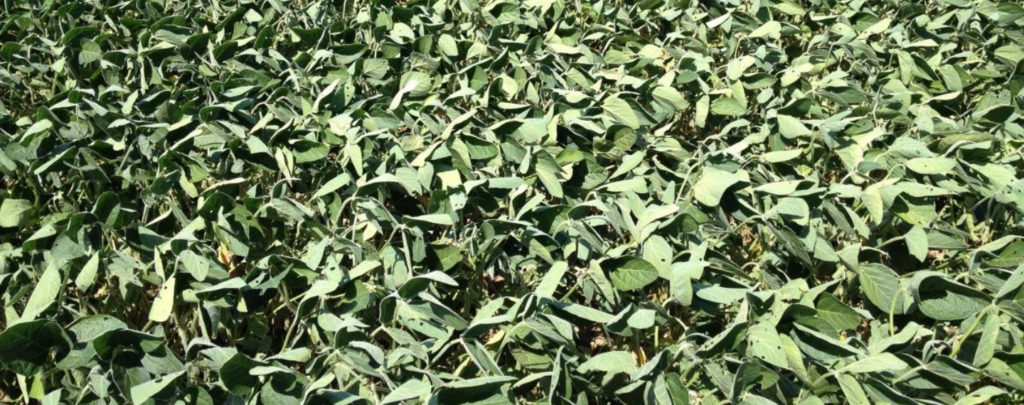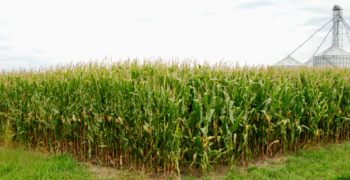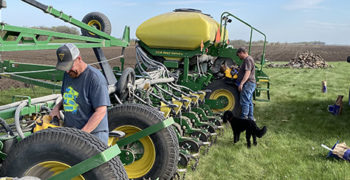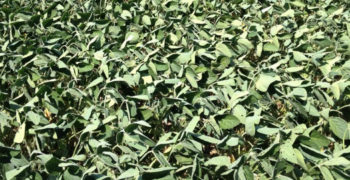Disease and pest pressure and water uptake are potentially major yield-limiting factors for corn and soybeans, especially in a year when drought causes added stress on those crops at key points in the growing season like pollination.
Stressors like these are inevitable every growing season. From the time a corn or soybean seed is planted, it’s susceptible to damage from a number of sources. With attention to common crop challenges, it’s possible to select the right corn and soybean varieties to minimize damage from common issues like drought stress and disease pressure.
Adapting to drought stress
Drought stress can be hit-and-miss in the western and central Corn Belt. Iowa typically has adequate rainfall throughout the year, but is not immune to heat and drought stress, especially in July and August. But in parts of Nebraska and South Dakota, rainfall deficits and heat stress are more common on an annual basis. These conditions make it important to prioritize tolerance and strong water uptake in variety selection according to the growing conditions you are likely to encounter.
Champion Seed has a full suite of drought-tolerant varieties, and we conduct a lot of research and field testing that helps us determine the genetics and maturities that are going to adapt to and perform well in different geographies without losing yield to heat and drought.
Currently, we offer varieties with DroughtGard® technology that alongside VT2 Pro insect resistance helps growers in drought-prone areas prevent damage from these inclement conditions. Corn hybrids like Champion Seed 61A17 and 64A15 DG VT2 — products of our breeding selection and integration of the latest drought tolerance traits — show strong performance when hot, dry conditions would otherwise cause a crop to fall well short of its yield potential.
Overcoming pest and disease pressure
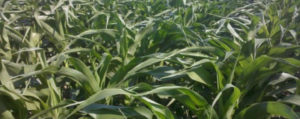
Crop pests and disease like fungal and bacterial diseases are increasingly common, especially in high-residue systems like no-till. Pathogens can overwinter and test crop vigor from day-one, causing a range of limitations in stalk, stem, foliar and reproductive development in corn and soybeans.
Chemical fungicides are effective in managing fungal diseases when applied at the right time but aren’t effective against bacterial pathogens. A more effective strategy is the optimal combination of seed varieties with strong disease resistance, seed treatments — like Champion Seed Elevate VIP — and in-season chemical applications when conditions favor disease development. Thoughtful seed selection is the best first step in mounting a strong defense against common corn and soybean diseases.
An ounce of prevention is worth a pound of cure, especially with crop diseases like brown stem rot, sudden death syndrome and Phytophthra root rot in soybeans and tar spot, gray leaf spot and Goss’s Wilt in corn. The Champion Seed lineup includes seed varieties including resistance to these common diseases.
We’ve conducted inoculated and opportunistic trials to test traits that can maximize and protect our customers’ crop yields by facilitating the selection of the corn and soybean seed genetics that provide the best yield potential and disease tolerance possible on their farms. Inoculated trials help us identify the trait packages that perform best when faced with the specific diseases our customers are most likely to face throughout the growing season. These trials help us stay ahead of the pest and disease curve rather than react to outbreaks when they happen.
Placing varieties where they’ll thrive
Knowing the right defensive trait packages to plant isn’t just about reading up on the latest regional field reports. It requires attention to every field. That’s why we invest a lot of time and energy — from our farmer-dealers to our agronomy leaders and company owners — in being attentive to customers’ specific crop challenges and recommending the corn and soybean varieties that will ultimately reach their full yield potential.
While we conduct our own trials to confirm potential pathogen damage — especially for diseases that can cause major economic damage to a crop — we go a step further to ensure they’ll perform in our customers’ fields. The best genetics in the world won’t perform if they’re planted where they won’t thrive. Our job is to work with customers to not only provide the right seed but work with them to make sure it’s planted in the right places.
Interested in seeing how we can work with you to overcome your crop challenges and reach full yield potential? Get in touch with your local Champion Seed dealer and we’ll develop a game plan to place the right products in your fields.

Brandon Hulme
Agronomist
